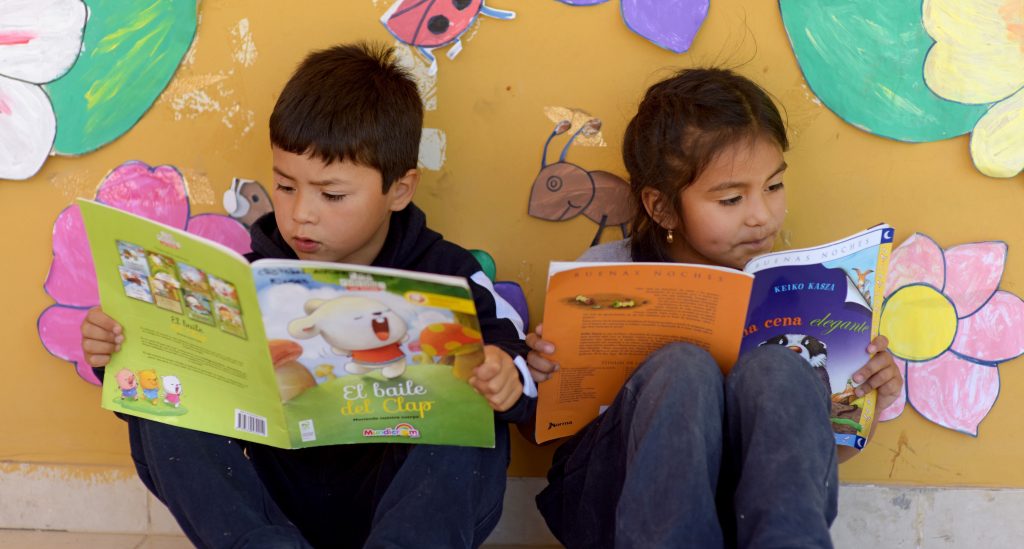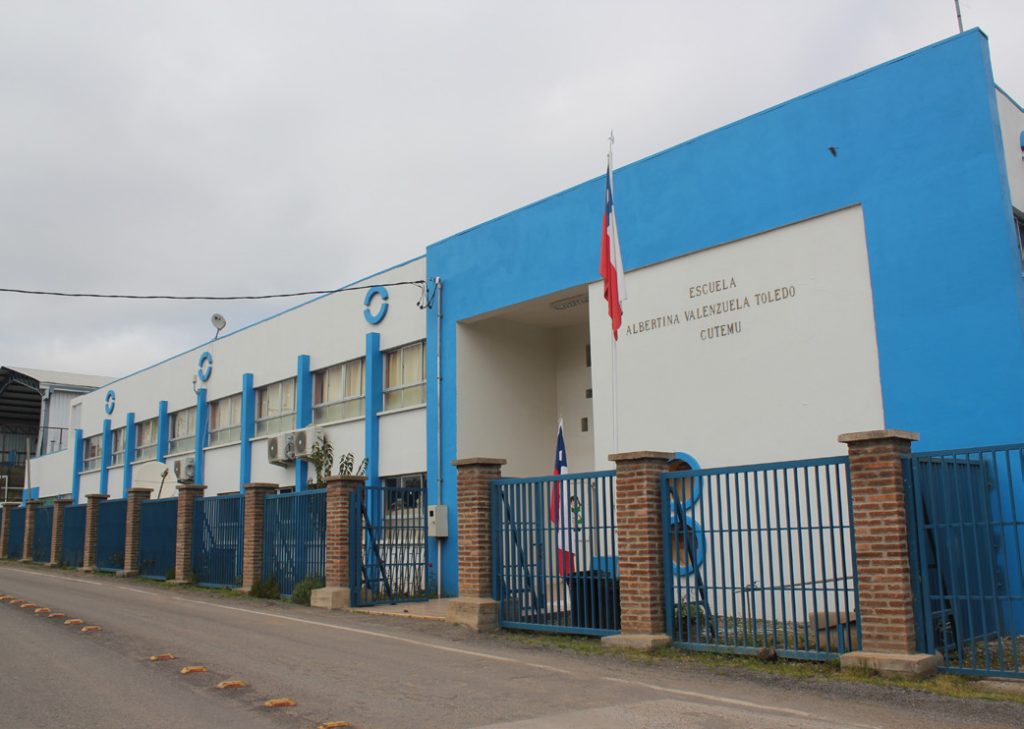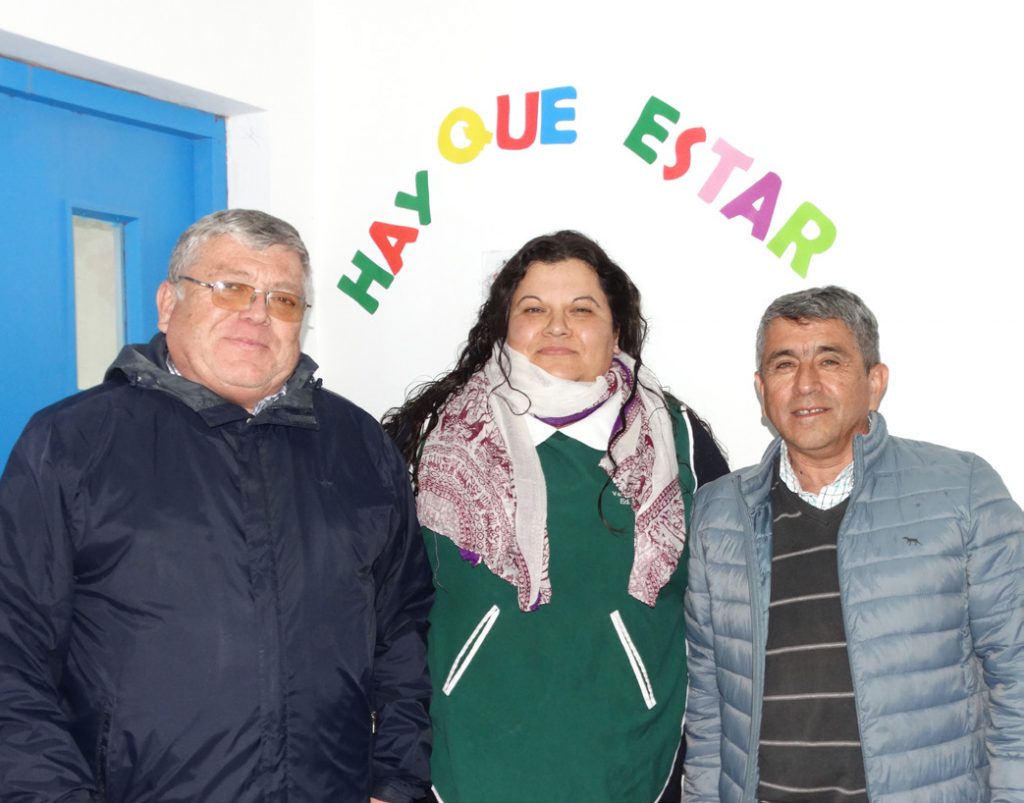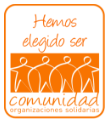Paredones, in the O'Higgins region, is a town in the middle of hills and ravines. Because of its geography, connectivity is complicated and from the beginning of the pandemic, municipal schools knew that it would be difficult to reach all of their students with online classes. Innovating became a challenge, and the community came up with the strategy of using the commune's school transport to use its vans, with all the sanitary safeguards, to visit the children and provide them with weekly supplies and materials, so that their learning would not be interrupted in times of crisis.

"Ithas been a very stressful period for our community," warns Beatriz González, coordinator of Paredones Kindergarten Education. "The pandemic has generated fear and uncertainty, but it also meant a blockage at the beginning: in March it was difficult to assimilate our work and fully comply with the ethical shifts. Today we feel that we are worn out by the fatigue and the burden of the work of these months.
Paredones has 14 municipal schools and the population of the commune is distributed in small villages. Many of the schools are located far away from homes, a significant percentage of the people of Paredones work in other sectors, and a large part of the teaching staff live far from the town.
"Although being at home has been a great opportunity to get closer to our children's learning, the most complicated thing for the children has been the confinement," says Carlos Núñez, a parent at the Albertina Valenzuela pre-school. " These years are very important for them," he adds, "because at this stage they absorb everything, they learn very quickly, and not having permanent contact with the school and their classmates has affected them a lot.
"From the beginning," says Beatriz González, "it was difficult for the educators to develop the accompaniment of their students, with face-to-face ethical shifts that not all of them could carry out, and even with serious problems to implement them online or remotely, due to the poor quality of the internet signal.

"Everyoneworks with the internet," warns Antonieta Vidal, a pre-kindergarten teacher at the Villa San Pedro School, "but here everything is mountainous, the connection is much more difficult, and very few parents are familiar with technology, nor do they have the devices or the time it takes to adequately support the youngest children.
Vanesa Pérez is also an educator, teaching in the early grades at the Albertina Valenzuela School, and says that the hardest part was discovering the tools to deal with the distance with families, given the conditions in Paredones and how the pandemic and confinement was affecting her community.
"Our school has encountered parents who are emotionally not very well and some have had to stop working to take care of their children, but also to avoid catching and spreading the disease in their families," she says.
"Overnight, you became a mother, a teacher, a worker and a housewife: everything," says Hayde Herrera, a parent of a pre-kindergarten student at the Villa San Pedro School, who saw her family's routines profoundly altered. "No one was prepared to be simultaneously concerned about the house, work and the children's education. We had to set up a new routine and adjusting was very stressful".
This, adds educator Vanesa Pérez, was an extra motivation in the search for new strategies that were practical, easy to apply and that would effectively help the community.

At the beginning of the pandemic, the kindergarten levels of both establishments began a remote teaching modality that included, on the one hand, the delivery of printed materials and work guides that families picked up at school, but also included the recording of short capsules that teachers have been responsible for sharing via
WhatsApp, an application that also became the main means of communication for the communities.
At the same time, the schools carried out a survey on the real conditions regarding the technological devices available to the families and the internet connectivity of each school, which not only revealed the impossibility of implementing an online modality or classes through video calls, but also the urgency of innovating.
"When the quarantine was decreed and families could no longer come to the school to pick up the material or ask questions, as a team we had to find strategies to reach as many of our students as possible," says educator Antonieta Vidal.
"In Paredones we have tendered school vans and others provided by the Ministry of Education," says Beatriz González. "Our premise was that no student could be left without attention and we coordinated with the schools that, whenever they needed it, the transporters would go to the homes with the educators to make visits and manage the delivery of the material that each school prepared for their children, as well as the Junaeb baskets.
"The van distributes guides and notebooks, but in our school, in addition, assuming all the sanitary safeguards and considering that my pre-kindergarten has only six students, we came up with the idea of visiting homes weekly and supporting families in their activities," says Antonieta Vidal. "We couldn't stay in our homes knowing that our children needed accompaniment!
"At first, we worked with guides that we sent by WhatsApp, but the problem was that parents couldn't print them," says educator Vanesa Pérez. "And that's when the idea of the travelling bags came up. In them, on a weekly basis, we include the materials of the different subjects, the school texts or some relevant information for each student".
"For us, the visits of the educators have been fundamental," says parent Hayde Herrera. "Most of the time, we parents are in a position to help our children with their activities, but we can never accompany them as our educators do. Every Friday, Aunt Antonieta comes, works for two hours with Lucas and takes the time to explain everything we need to know.
"La Bolsita Viajera has been very important," says parent Carlos Núñez. "Not only because on Fridays he brings and takes the material we do every week, but also because it is a way for the school to always be present. It has helped us to reinforce our routines, Carlitos already knows that his homework comes in the little bag, he looks forward to it, and without it he would lose the connection with his school and his classmates".
This initiative is part of the document "Early Education: 6 Innovations in times of Covid-19" that you can download in full at the following link https://bit.ly/3eokQoC





